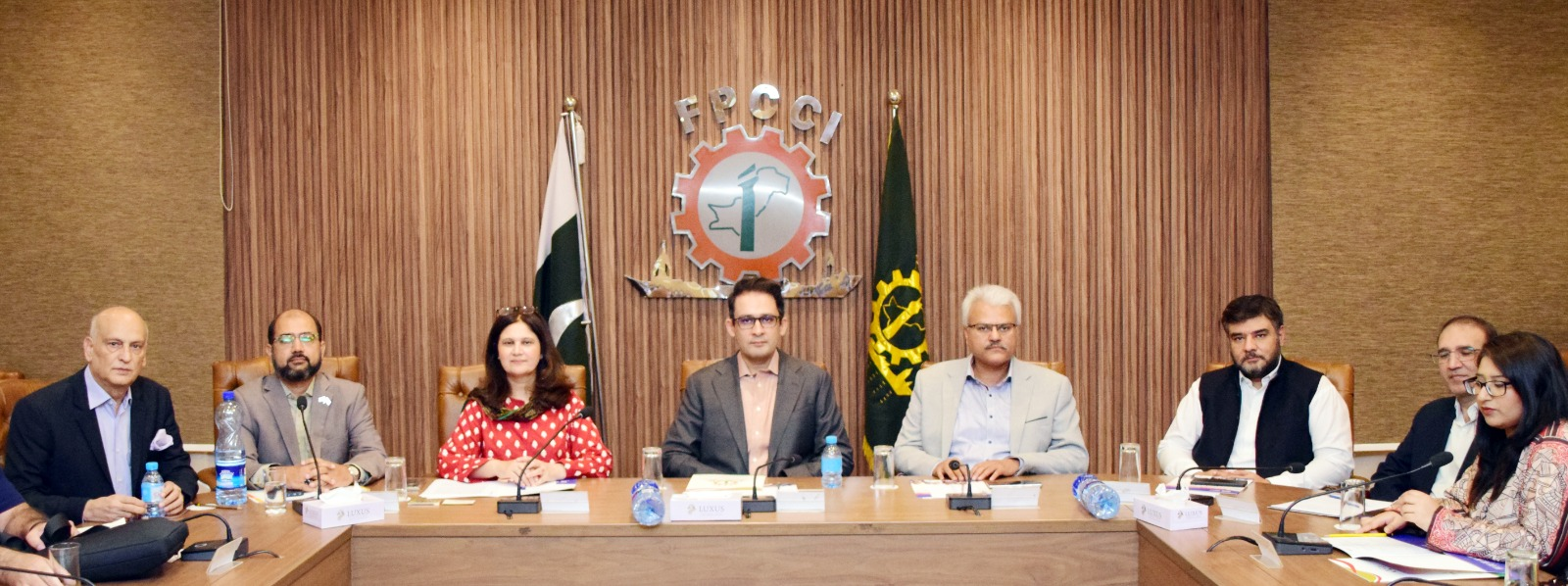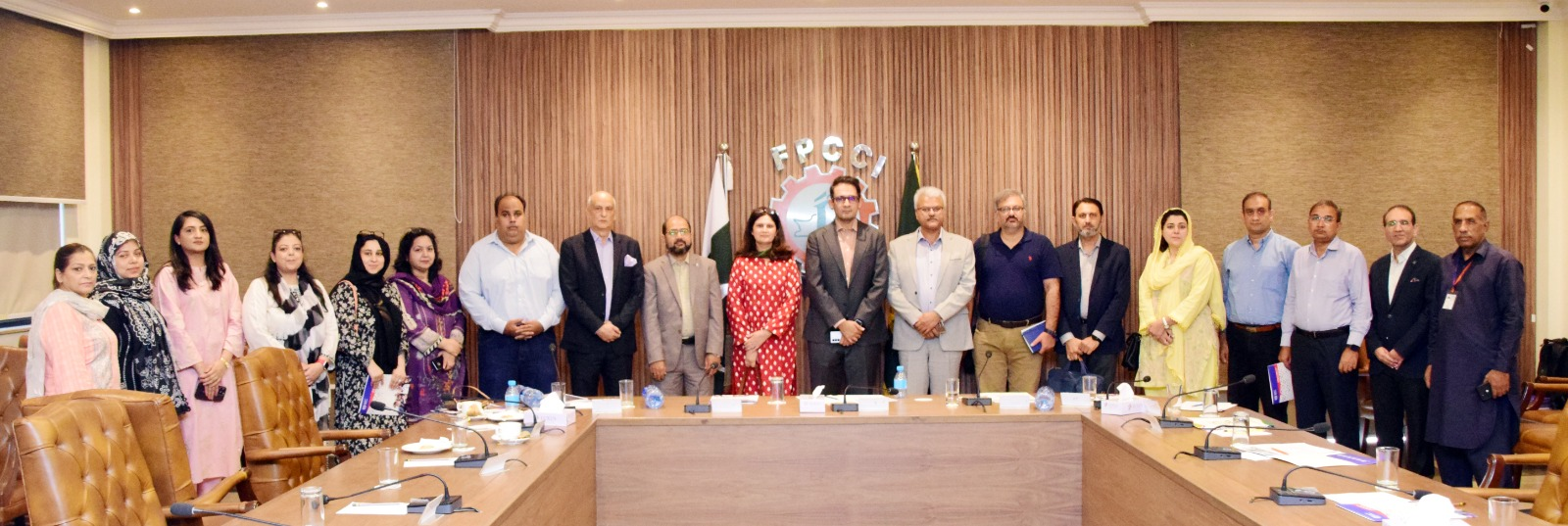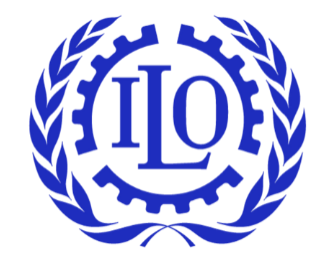

SMEDA-ILO Convene a Validation Session on the National Roadmap for SME and Worker Formalization
Lahore, September 25, 2025 – The Small and Medium Enterprises Development Authority (SMEDA) and the International Labour Organization (ILO) held a multi-stakeholder session at the Federation of Pakistan Chambers of Commerce and Industry (FPCCI) Lahore to share the draft of Pakistan’s first National Roadmap for SME and Worker Formalization. The meeting spotlighted business cases from the textile and auto sectors to illustrate the potential gains from formalizing operations.
The initiative is part of the SMEDA-ILO enterprise formalization project designed to reduce informality among SMEs while supporting a just transition towards sustainable production. Pakistan’s economy continues to grapple with high levels of informality, with nearly 84 percent of the workforce operating outside the formal sector. Representatives of SMEDA, FPCCI and ILO addressed the session.
SMEDA representatives informed that Mr. Socrat Aman Rana, CEO SMEDA had emphasized to align the National Roadmap with Pakistan’s SME Policy 2021 and the UN Sustainable Development Cooperation Framework. The initiative will offer SMEs clear incentives, technical support and helpdesk services to formalize operations and enhance competitiveness in global markets. According to the CEO SMEDA, the initiative was successful having the fullest support of Special Assistant to the Prime Minister for Industries & Production, Mr. Haroon Akhtar Khan and the Federal Secretary, Ministry of Industries & Production, Mr. Saif Anjum. The government believes that strengthening domestic industries and integrating SMEs into the formal economy are complementary strategies that will expand employment opportunities and contribute to sustainable economic growth, said Ms. Nadia Jehangir Seth, GM SMEDA for Policy and Program Design.
Earlier, welcoming the participants, Mr. Zain Iftikhar Chaudhary, Vice President FPCCI, expressed confidence that the roadmap would strengthen public-private collaboration. He asserted that industry and policy must advance hand in hand to enable formalization without compromising inclusivity.
The session concluded with remarks from Mr. Zaki Aijaz, Vice President FPCCI, who lauded the collaborative effort of SMEDA and ILO and underscored the private sector’s readiness to support implementation of the National Roadmap for formalization. He particularly appreciated the role of Mr. Haroon Akhtar Khan, Special Assistant to the Prime Minister in his business friendly and enabling approach.
Mr. Sheharyar Tahir, General Manager for Gender and Sustainability briefed the audience of the on-going SME development initiatives. He shared details of the ‘SME Certification Program’, which focuses on enabling SMEs access accreditation and certifications to access international markets.
The Project Consultants Mr. M. Naeem Ansari and M. Awais outlined key considerations for the roadmap, identifying drivers of change such as market access opportunities, simplified compliance procedures, and targeted financial incentives that can motivate informal enterprises to register and grow.
It is notable that ILO and SMEDA will roll out capacity-building workshops and a nationwide awareness campaign in the coming months. The National Roadmap will serve as a blueprint to integrate informal businesses into Pakistan’s formal economy, contributing to decent work, sustainable growth, and enhanced export competitiveness. The roadmap also proposes sector-specific strategies, helpdesks in Lahore and Karachi, enterprise training modules, and digital tools to guide SMEs.


